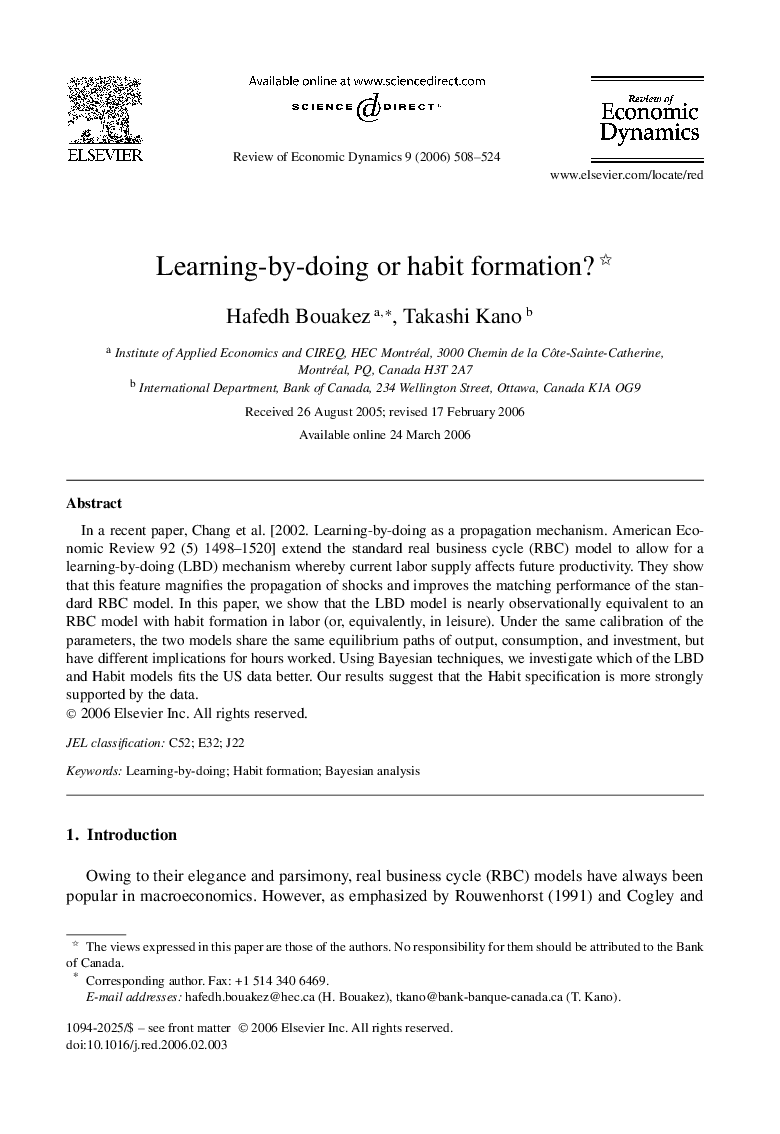| Article ID | Journal | Published Year | Pages | File Type |
|---|---|---|---|---|
| 986464 | Review of Economic Dynamics | 2006 | 17 Pages |
In a recent paper, Chang et al. [2002. Learning-by-doing as a propagation mechanism. American Economic Review 92 (5) 1498–1520] extend the standard real business cycle (RBC) model to allow for a learning-by-doing (LBD) mechanism whereby current labor supply affects future productivity. They show that this feature magnifies the propagation of shocks and improves the matching performance of the standard RBC model. In this paper, we show that the LBD model is nearly observationally equivalent to an RBC model with habit formation in labor (or, equivalently, in leisure). Under the same calibration of the parameters, the two models share the same equilibrium paths of output, consumption, and investment, but have different implications for hours worked. Using Bayesian techniques, we investigate which of the LBD and Habit models fits the US data better. Our results suggest that the Habit specification is more strongly supported by the data.
